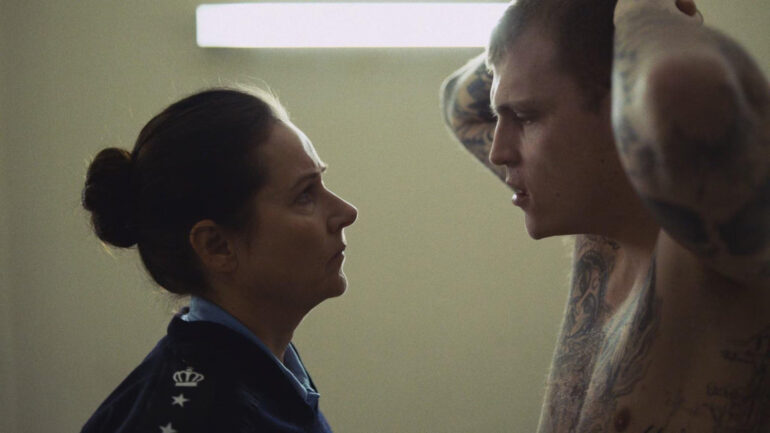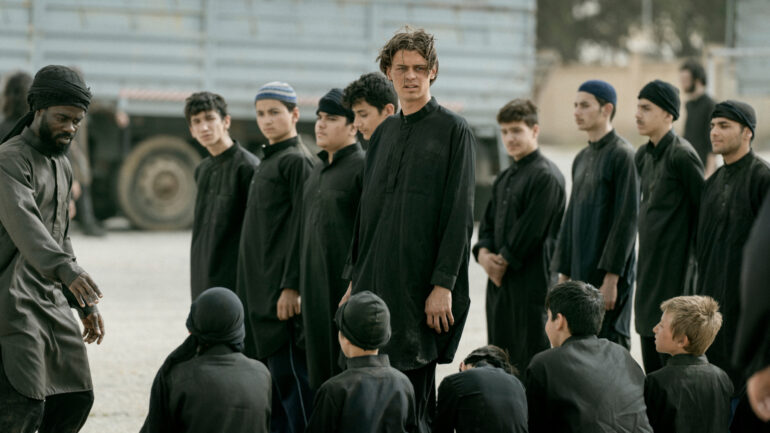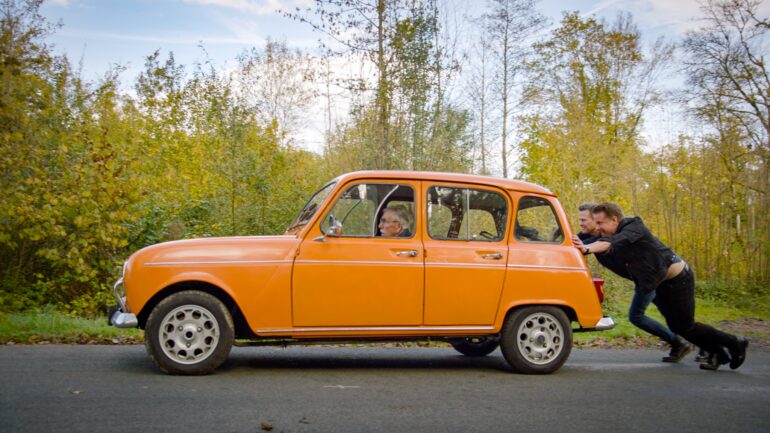Written by: Per Juul Carlsen
17.03.25
For the first time in the 78 year old history of the Danish Film Critics Awards, there’s no best male or best female actor. Only best actor. Contrary to expectations, the women are on top of the new perspective.
When the first film prizes were established nearly 100 years ago, it was a logical step to hand out one prize to the best male and one prize to the best female actor. In a very male-dominated industry, the women would rarely have a chance when competing with the men.
That distinction is disappearing from the prizes of today, as the idea of gender has changed and films with strong female leads are more common. For the first time since the first Bodil Awards were handed out in 1948, there were no genders. Just seven actors of all sexes that have been handpicked as the very best by Danish film journalists. Surprisingly, as the Danish film industry is still male-dominated, the women almost wiped out the men in the nominations.
Sidse Babett Knudsen won the Bodil Award for Best Actor Saturday night for Sons (Vogter) in competition with four women: Trine Dyrholm for Birthday Girl, Bodil Jørgensen for When in Rome (Rom), Viilbjørk Malling Aggerfor Matters of the Heart (Fuld af kærlighed), and Flora Ofelia Hoffmann Lindahl (Madame Ida), and just two men: Nikolaj Lie Kaas for Way Home (Vejen hjem) and Gustav Giese for The Quiet Ones (De lydløse).
As the four categories of best actors (Best Female, Best Male, Best Supporting Female and Best Supporting Male) have shrunk into two prizes, the Danish film journalists established a new category, the Best Ensemble award, to honour a group of actors, as opposed to the classic and almost mythical strong lead character. The winners of the new prize were the actors in the family drama Matters of the Heart. Lars Ranthe, who plays the alcoholic father in the film, also won the genderless prize for Best Supporting Actor.
Apart from the new perspectives, the 78th Bodil Awards almost seemed in perfect balance regarding gender. The Best Danish Film Award at Bodil, among the oldest prizes in Europe, was Way Home, which is directed by Charlotte Sielingand written by Sieling with two men, Nagieb Khaja and Jesper Fink. The trio also won the prize for Best Script.
The award for Best Cinematography went to Adam Wallensten for Birthday Girl. Wallensten had the distinguished honour of being nominated twice (out of three nominations), the other nomination being The Quiet Ones. Best Documentary was The Son and the Moon by Roja Pakari and Emilie Adelina Monies.
Lars von Trier won an Honorary Bodil as “the most original artist in Danish film ever”. As Trier is in bad health, his four kids received the prize, and in typical fashion Trier asked them to say thank you with the words “that was about fucking time”.
Last week, Loveable (Elskling) received the Best Film award from the Norwegian film critics. Helga Guren took the Best Actor award for her portrayal of Maria in Loveable. Additionally, Rasmus Tukia, Ada Wikdahl, Arash Ebrahimi, Chris Kongshaug, Derek Bancroft, Tom Chr. Lilletvedt, and Sindre Hammersbøen were recognised by the critics for their contributions to the visual effects of the documentary The Remarkable Life of Ibelin (Ibelin). Earlier this year, Filip Hammar and Fredrik Wikingsson's documentary The Last Journey (Den sista resan) received the Swedish Film Critics Association's Greta Award for Best Film of the Year.
Among the mentioned films, Sons, Birthday Girl, Way Home, and The Quiet Ones have been supported by Nordisk Film & TV Fond.




